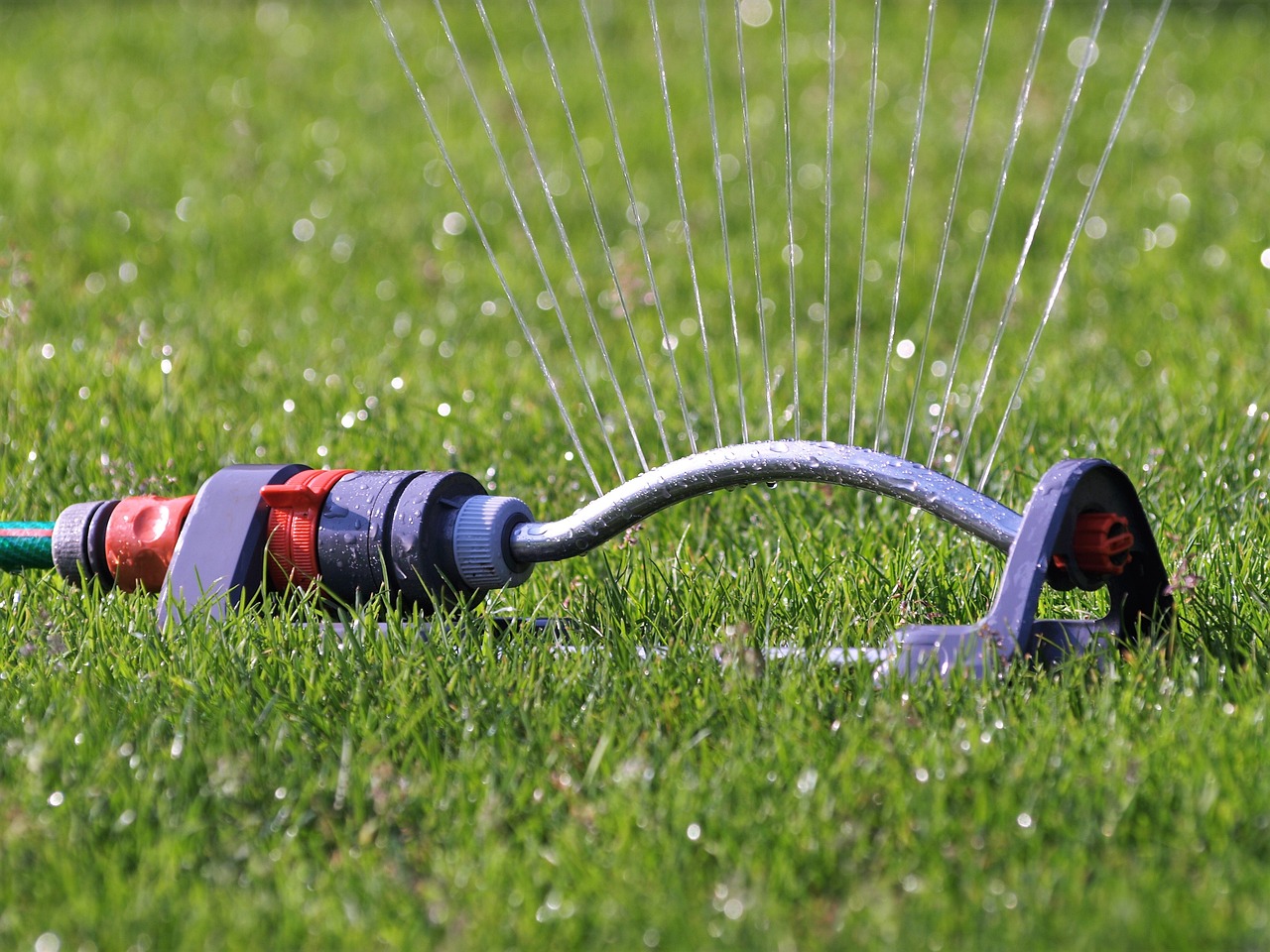June 3rd 2024
How To Care For A Newly Laid Lawn

How to Care for a Newly Laid Lawn: A Complete Guide for a Thriving Lawn
This quick guide on how to care for a newly laid lawn simplifies lawn care for a healthy, green lawn you’ll love. A nicely presented garden alone can add up to 20% to your house value and past research has shown that approximately 70% of home buyers would pay more for a property with an outdoor green space* . A lush green carpet of grass not only adds beauty to your property but also provides a cool, inviting space for relaxation and family fun. However, establishing a new lawn takes a bit of work. The good news is that grass can be quite hardy, so with proper care, your newly laid grass will soon thrive!
Watering Your New Lawn: The Key to Success
Watering is crucial for establishing a healthy root system in your newly laid lawn. During the first two to three weeks, focus on deep watering. This means soaking the soil to a depth of 6-8 inches, rather than just wetting the surface. Aim to water your lawn early in the morning or evening to minimize evaporation. Once the roots are established, you can adjust watering frequency to 2-3 times per week, depending on weather conditions.
Nourishing Your New Lawn with Fertilizer
While a newly laid lawn shouldn’t be fertilized immediately, it does need a balanced diet once established. The ideal time to fertilize depends on your grass type. Cool-season grasses like fescue and ryegrass benefit most from fertilization in early autumn and spring. Warm-season grasses like Bermuda grass prefer fertilization during the warmer months. Choose a fertilizer formulated for new lawns and follow the application instructions carefully. If you are unsure what type of grass is in your lawn, most lawn professionals will recommend feeding your lawn regularly four times a year. Once in the early spring (usually around March- April depending on the weather) two more between May and July and another in the late autumn (September – November). If you only fertilize once a year, do it in September.
Mowing for a Thicker, Healthier Lawn
While you might be eager to get mowing, it’s best to wait at least three weeks to allow the roots to develop. When you do start mowing, keep the blade height high and only remove the top third of the grass blades. Regular mowing encourages the grass to grow thicker, creating a more dense lawn that resists weeds. Taller blades of grass also shade the soil, helping retain moisture.
Preventing Weeds for a Flawless Lawn
Weeds can quickly take hold in a new lawn, competing with your grass for nutrients and water. It’s best to avoid using chemicals. Once weeds appear, pull them out by hand and rake the lawn before mowing.
Keeping Your Soil Healthy: Aeration and Organic Matter
The foundation of a healthy lawn is healthy soil. Aeration involves making small holes in the soil to improve drainage, air circulation, and nutrient absorption. You can aerate your lawn with an aerator or by simply spiking the soil with a garden fork. Adding organic matter like compost can further improve soil structure and provide essential nutrients for your new lawn.
Minimize Foot Traffic on Your New Lawn
A newly laid lawn is delicate and susceptible to damage from heavy foot traffic. Try to avoid walking on the grass for the first few weeks. If necessary, use stepping stones or planks to create a temporary pathway while your lawn establishes itself.
Adapting Your Lawn Care for Changing Seasons
As the seasons change, so will your lawn care routine. During hot, dry summers, you may need to water your lawn more frequently. Conversely, watering will decrease significantly during winter dormancy. If you live in an area with harsh winters, consider covering your lawn with a tarp or blanket to protect it from the elements.
Overseeding: After a few months, consider overseeding your lawn to create a thicker, more durable carpet of grass.
By following these tips on how to care for a newly laid lawn your grass will soon transform into a lush, green haven that will be the envy of your neighbours. A healthy lawn not only enhances the beauty of your property but also improves air quality, reduces noise pollution, and provides a cool space for outdoor activities.
If you have any questions about caring for your new lawn, consider consulting a professional landscaper.
*statistic from sold.co.uk
For further guidance on how to care for a newly laid lawn you may wish to visit:
You may also enjoy reading our article on Garden design tips for your new build home



 Customer Portal
Customer Portal


